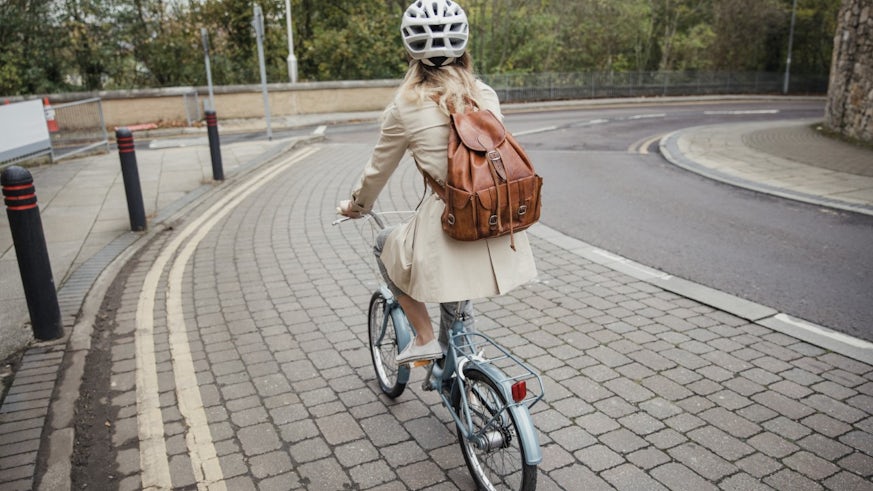Time to capitalise on COVID-19 disruptions to lock in green behaviours, say experts
19 May 2021

As lockdown measures ease this week in the UK, environmental psychologists are urging that before rushing back to business as normal, we take advantage of the shifts observed over the past year to lock in new, greener behaviours.
Writing in the journal Current Opinion in Psychology, the team from Cardiff University’s Centre for Climate Change and Social Transformations (CAST), suggests environmental interventions aimed at reducing our emissions should be targeted at times when habits are weakest and most malleable to change.
Their work draws on the idea of “habit discontinuity” whereby major changes in our lives can provide a window of opportunity to change behaviours.
This research initially focused on the impact of life events, such as house moves, and the effect this could have on changing individuals’ commuting behaviours (e.g. cycling to work instead of driving). This effect is said to last for just three months before habits become ingrained again.
In their article, the research team focus on priority areas where personal actions are necessary to reduce our emissions in line with the UK’s net zero target. These include flying – currently the highest carbon emitting activity – and eating less red meat and dairy.
Surveys conducted by CAST throughout the pandemic highlighted how UK lockdowns significantly reduced individuals’ carbon footprints, with people buying and travelling much less. Additionally, the impact of the pandemic appears not to have dented individuals’ willingness to take climate action or their concern about the climate emergency.
CAST Director Professor Lorraine Whitmarsh, from the University of Bath, said: “COVID-19 represents the most significant disruption to lifestyles since the Second World War – people have been working, consuming and interacting in new ways, many of which are good for the climate and could also improve wellbeing.
“As lockdown eases, employers, city leaders and government now need to implement measures that will lock in these positive behaviours, to enable a green recovery rather than a return to business as usual.”
Co-author Dr Stuart Capstick, a Research Fellow from Cardiff University’s School of Psychology, said: “I hope that we can apply some of the lessons from a very difficult year to help tackle the climate emergency too. All of us have had to get used to the idea that our own actions matter for the health and wellbeing of other people.
“When it comes to reducing emissions and bringing about low-carbon ways of life, there are important parallels here and a need to take our own part in that seriously.”
Professor Whitmarsh is due to speak today at the ClimateExpo, a major conference taking place all week to highlight the latest thinking and the international research in relation to climate change and net zero in the run-up to COP26.
Find out more about the free week-long event, which is taking place six months before the UN Climate Change Conference COP26 in Glasgow, here.
